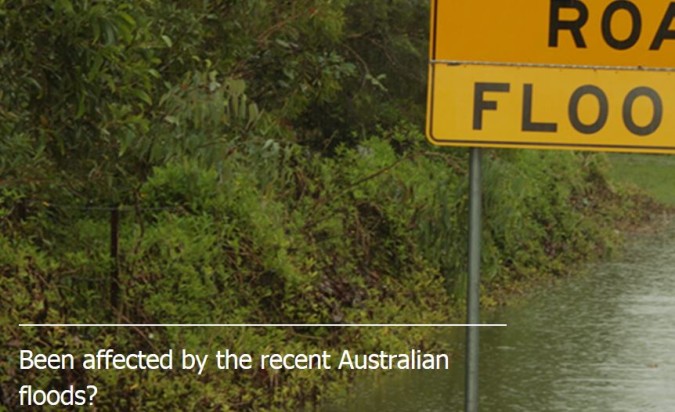
Been affected by the recent Australian floods?
Each year storms, hail and heavy rain cause tens of millions of dollars’ worth of property damage and injuries to people; not to mention the emotional anxiety experienced from witnessing your livelihood and belongings in ruin.
Steadfast insurance brokers have first-hand insurance experience when it comes to dealing with storm and flood emergencies. Here is some general information on what you can do if you have been affected. All situations are different however, and you should seek professional advice from your broker who’ll tailor a solution for your individual needs.
After a storm or flood:
If you have been affected by flooding, here are some steps to take in pursuit of an insurance claim for loss suffered to your business or residence.
- Take reasonable steps to minimise further damage to your property or business, without exposing someone to risk of injury.
- If it’s safe to do so, retrieve your copies of the relevant policies from the affected property.
- If you are insured through an insurance broker, contact them immediately so they can report your claim to the insurer as soon as possible. Your insurance broker will be able to manage your ongoing claim on your behalf. If you do not have an insurance broker and know who your insurance is with, you will need to contact your insurer directly and they’ll be able to advise you of your next steps.
- Take pictures of damage to your property and possessions.
- Make a list of the losses and damage suffered at each insured address. Also include the cost of temporary accommodation, rental cars, and loss of profits for business interruption claims.
- Retain and if safe to do so, gather all documents possible to support the items listed in your inventory of loss such as invoices, receipts, financial statements, tax returns and so on. If you don’t have that paperwork, start contacting those in a position to supply copies of those documents (ie. relevant retailers, your accountant, the ATO etc).
Having flood insurance is very important so check your policy or talk to your insurance provider to see if you’re covered.
Prepare for tomorrow. Be storm ready.
If you live in low-lying areas, near water, in an area prone to wild storms and heavy rain, behind a levee or downstream from a dam, you need to always be prepared for flooding. Even if you live in an area with a low risk of flooding, it’s important to be prepared because anywhere it rains, it can flood.
You can use this flood warning map to see the latest rainfall and river conditions and any flood warnings that have been issued.
Having flood insurance is very important so check your policy or talk to your insurance provider to see if you’re covered.
Other ways to prepare for a flood are:
People:
- Prepare a household emergency kit. Include things such as a radio, first aid kit, batteries, torch and contact numbers.
- Make sure everyone in your business and at home, know what the risks are and formulate a plan for contacting one another if separated.
- Always follow the instructions of the emergency services.
Insurances:
- Talk to your broker or insurer to understand:
- Your sums insured – e.g. if your property is in a higher storm or flood rated area it may cost more to rebuild now than previously;
- Your level of cover, terms and conditions specific to storms and floods on your policies – e.g. business, home and contents, motor vehicle and boat.
- Check that your insurance policy includes cover for items such as interim premises and the adequate removal of debris from the property.
- Keep current records of your contents, including types of furniture materials, types of plants and valuables in waterproof bags.
- Keep a separate copy of those records electronically.
Property; home or business:
- Perform regular maintenance on your business, home and property as materials deteriorate over time.
- Clear your property of dead trees or bushes, ensuring they are away from the house and power lines.
- Secure loose outdoor items and garage vehicles.
- Have a builder check the structural soundness of your home and the condition of the roof as building standards change to reduce the risk of damage to your home.
- Keep gutters and down-pipes clear.




